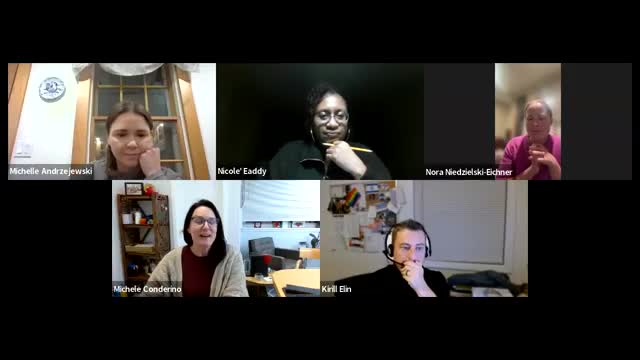Norwalk nonprofit outlines hurdles, timeline for five-unit Berkeley Street affordable housing project
Get AI-powered insights, summaries, and transcripts
Subscribe
Summary
Open Doors told a Norwalk City committee that its five-unit Berkeley Street townhouse project is deeply affordable but was slowed by state design rules, a lengthy state financing process and contractor scarcity; construction is expected to resume in December with a planned certificate of occupancy in October 2026.
Open Doors, a Norwalk nonprofit that runs shelters and supportive services, told a Norwalk City committee on Nov. 26 that its five-unit Berkeley Street townhouse project will provide deeply affordable three-bedroom family housing but has faced a drawn-out financing and permitting process driven largely by state requirements.
"It took us a year to get through the state's process to close on financing," said Michelle Condreno, CEO of Open Doors, describing an application she called ‘‘several hundred pages’’ and requiring specialist consultants. Condreno said the nonprofit closed on financing with the state of Connecticut in October 2024 and later had to reenter permitting after letting a permit lapse.
The project, at 24 Berkeley Street, was bought in April 2022. Condreno said the site previously had architectural drawings, planning and zoning approvals and a foundation permit; Open Doors then performed value engineering to meet affordable-housing standards and reduce per-unit costs. "We had to value engineer this project so that it was again in a more affordable, development space," Condreno said.
Condreno told the committee that Connecticut's evolving affordable-housing design standards — including a recent visitability requirement — add time and complexity. "There's only a few architects who really know those standards," she said, adding that these rules and the tied funding streams narrow the pool of contractors willing to take on such projects.
Construction began after the organization received a building permit in May 2025, Condreno said, but site issues including boulders and soil compaction plus a prolonged negotiation over an access agreement with a neighbor forced a modest redesign to avoid encroachment. Open Doors plans to remobilize construction in early December and projects a certificate of occupancy in October 2026.
The Berkeley Street units are intended to be deeply affordable family homes. "This is five units. It is deeply affordable, so it will hit that 30% or below area median income," Condreno said, adding that the three-bedroom units are aimed at working families who live in or near Norwalk but cannot afford local market rents.
Committee members pressed on costs: Condreno acknowledged that per-unit costs for small projects are high and that builders often prefer larger developments because fixed costs are spread over more units. "When you only can spread that cost over five units, that's a lot harder," she said.
Condreno recommended several local steps the city could take to encourage similar projects: help nonprofits and housing authorities identify properties that could be converted to residential use, revisit multifamily zoning restrictions in suburban areas, and review boarding-house or single-room-occupancy rules to allow more diverse, lower-cost housing types. "If a building can be converted from commercial to residential depending on zoning… it would be really good for us to hear about that," she said.
On tenant selection, Condreno said Open Doors will follow income-based criteria required by program rules and plans to prioritize applicants working in or living in the community if allowed by funding requirements. She said the organization will post an applicant list near the certificate-of-occupancy and pair the housing with optional services from its economic opportunity hub.
The committee returned to its agenda and, after confirming a quorum of four members, voted to accept the meeting minutes as submitted; the chair announced four in favor and the minutes were adopted. The committee closed the meeting after thanking the presenters and noting follow-up items such as exploring permitting process improvements and redevelopment-agency coordination to identify available properties.
Open Doors emphasized that while local process improvements could help, much of the project timeline was driven by state regulations and funding procedures. The presentation illustrated both the potential and practical difficulties of producing small-scale, deeply affordable family housing in Norwalk.
